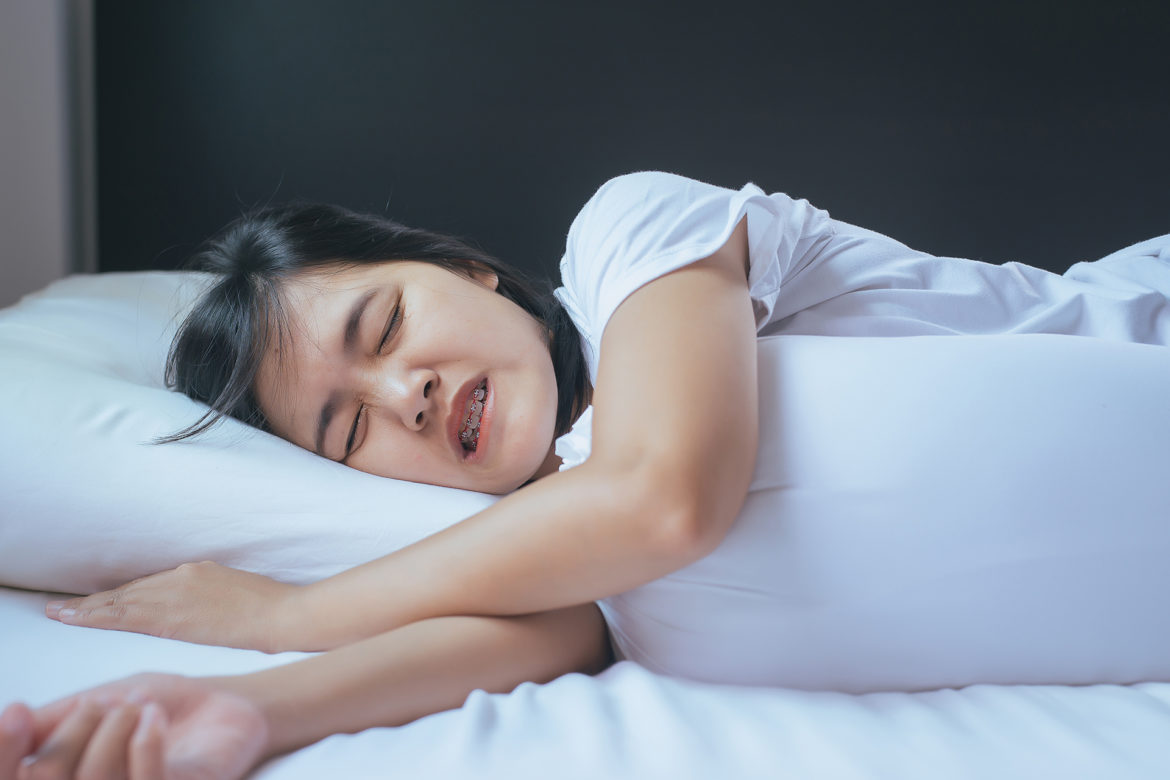Welcome to #Adulting, the ultimate breakdown of all your grown-up needs. These articles are here to help you feel less alone and answer all your personal, financial, and career questions that weren’t answered in school (no judgment, we get it!). Whether you’re looking to find out how to tackle laundry or you want a deep breakdown on how to make a savings plan—we’ve got you covered. Come back every month to find out what life skills we’re upgrading next and how.
Due to the coronavirus (COVID-19) pandemic, we have been living through an unusual and challenging part of history for over a year. While we may have felt enthusiastic to take care of ourselves at the start, heightened anxiety might have diminished our healthy habits—which has repercussions for our sleep and oral health.
A survey released at the end of last year by the American Dental Association showed that 60% of dentists reported increases in the prevalence of teeth grinding, otherwise known as bruxism, and other stress-related oral health conditions. But don’t fret if this is a habit you’ve been doing during the pandemic. We connected with a sleep psychologist and dentist to give us the low-down, from bruxism symptoms to solutions.
What is bruxism?
Bruxism is a condition in which you grind, gnash or clench your teeth, either when you’re awake or asleep. Some people get facial pain and headaches and it can wear down your teeth over time and even break fillings.
“I first noticed the problem last September,” Harrison Smith, 27, tells HelloGiggles. “I woke up one morning with jaw pain and unable to open my mouth wider than a few centimeters; I struggled to even eat breakfast. After a bit of research and a dental appointment, I realized this was due to clenching my jaw in my sleep tied to a lot of pent-up pandemic-related anxiety.”
If, like Harrison, you’ve had jaw stiffness, worn-down teeth, or disrupted sleep, you could have bruxism.
“The chewing muscles are big muscles and can build up a lot of lactic acid and tension,” says dentist and specialist prosthodontist Ian Small. “Our recent lifestyle changes and the economic uncertainty means we may be carrying around more tension than normal, which could go straight to the teeth.”
What causes bruxism?
Bruxism can be a side effect of certain medications (such as antidepressants) and it is more likely to occur for people who have a sleep disorder, like obstructive sleep apnoea.
According to The Bruxism Association, lifestyle factors can contribute to bruxism, and tobacco use and alcohol consumption can increase your risk, especially if consumed right before bed. However, in 70% of cases, the primary cause is stress and anxiety.
We experience many stressors throughout the day, which can spill over into the night. However, it carries over in different ways for different people. Some might have nightmares or insomnia and for others, it manifests as teeth grinding.
Dr. Small added: “Quite often, just knowing this is an anxiety issue, which…

